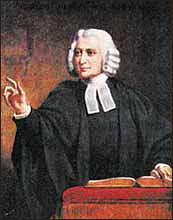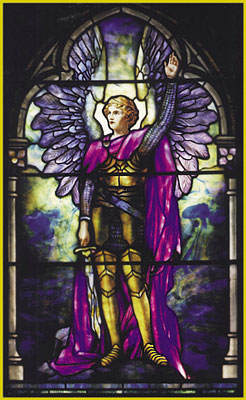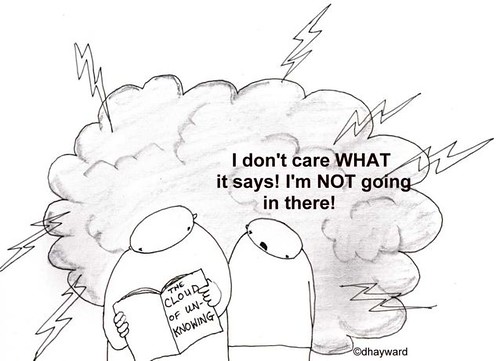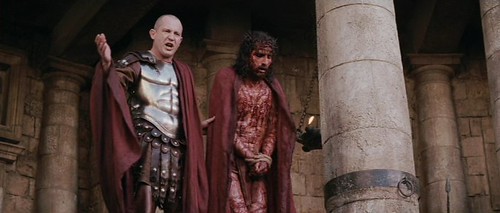When I trained as a local preacher in the early eighties, we were warned against preaching about the Trinity because it is too difficult. My experience over the years, has been to find it is an inspired doctrine, even if it is not really scriptural. I will answer two questions, pointing out some ways in which Christians can create idols out of misunderstandings of the Trinity. What do we mean by persons? Why are there three persons?
What do we mean by persons?
Tertullian was the first theologian to develop the idea of the Trinity. He used the word person, which is derived from the Latin per sonar, which means 'through sound'. This derived from the ancient Greek theatre, where the actors used large masks. One actor might play several roles using different masks. The mouths of the masks acted as amplifiers, and so for those in the audience seated on the back row their primary experience of the theatre was through sound, something like a radio play.
 So, the three persons of the Trinity are like masks worn by God. We cannot know the God behind these masks just as we would not recognise an actor behind the Greek masks. Each mask, however, is a valid way of knowing God.
So, the three persons of the Trinity are like masks worn by God. We cannot know the God behind these masks just as we would not recognise an actor behind the Greek masks. Each mask, however, is a valid way of knowing God.
For some people this explanation might take the paradox out of the Trinity. People love to ask how one person can be three. (The divine unity behind the three persons is not a person and so there is no way we can know it.) They use analogies of ice, water and steam, or the egg shell. white and yolk. These things are willful confusion. I don't find any paradox in the image of an actor behind three different masks so long as we understand we cannot walk around the back of the mask and meet the actor.
Take a look at the first photo. Who is it? Is it David Tennant or is it The Doctor? There is a story that early in his time playing The Doctor in Dr Who, someone approached David and greeted him. David didn't know who it was and she eventually realised she had met Christopher Ecclestone, David's predecessor in the same role. She was seeing the character and not the actor. This is how we see the persons of the Trinity. Those who see David Tennant in the photo are seeing the actor behind the character. I suspect few people will recognise the actor in the second photo. His name is Norman Painting. No? He played, until he died a few weeks ago, Phil Archer in the BBC Radio soap, The Archers. He played that role for about 60 years. I suspect some readers might know his name but have no idea what he looks like. Many more would recognise the voice of Phil Archer.
 We know Phil Archer through sound and there is no way we would confuse him with Norman Painting. So, we know God directly through the Trinity, and not some other God behind these three persons. We can only know God through the three persons.
We know Phil Archer through sound and there is no way we would confuse him with Norman Painting. So, we know God directly through the Trinity, and not some other God behind these three persons. We can only know God through the three persons.
Why are there three persons?
If there were only one person rather than three, there would be no issue. The person and the God behind the person would be one and the same. The problem here is the tendency to absolutise God, according to our own standards of power. So, God is immortal, omnipotent, omnipresent, all knowing, etc. Is this what God is like or how we would like God to be, someone immense and powerful but perhaps more favourably disposed to us than the local despot? This is an image of God which appeals to those who believe kings have divine rights and that wielding of political power is all important. Many Christians are believers in this single god, a god who bears no resemblance whatsoever to the Christian God.
Other Christians are dualists. This is a very comfortable and stable belief that there are two equal gods. One is usually seen as good and the other as evil. Satan is of course the name of this other god. What people don't understand is that Satan diminishes God, God is no longer all in all if part of him has been taken away and called evil. Satan is an idol and it is shameful so many Christians believe in this character, created entirely to apportion blame to enemies and away from oneself. A dualist worldview pervades modern politics as well as Christian fundamentalism. Both divide the world into good and evil and project the evil onto their enemies
Another dimension to this is the tendency of some atheists to project evil onto religion. OK, so you don't believe in Satan, good. No one should; Satan is a lie. But you do believe religion is an unmitigated evil? So, how exactly does that distinguish you from the Christian fundamentalists? Don't tell me its because they hate atheism. Fundamentalists hate my variety of religion just as much as you do. The difference between atheism and fundamentalism seems a bit academic from where I'm sitting.
Three persons work because they upend dualisms. A Trinity will always be off-balance, stepping on one another's heels. They have to learn to anticipate each other's moves, to dance around each other. The Trinity incorporates and absorbs the evil depicted by believers in Satan. I will explain what I mean in my next post.
















Recent Comments